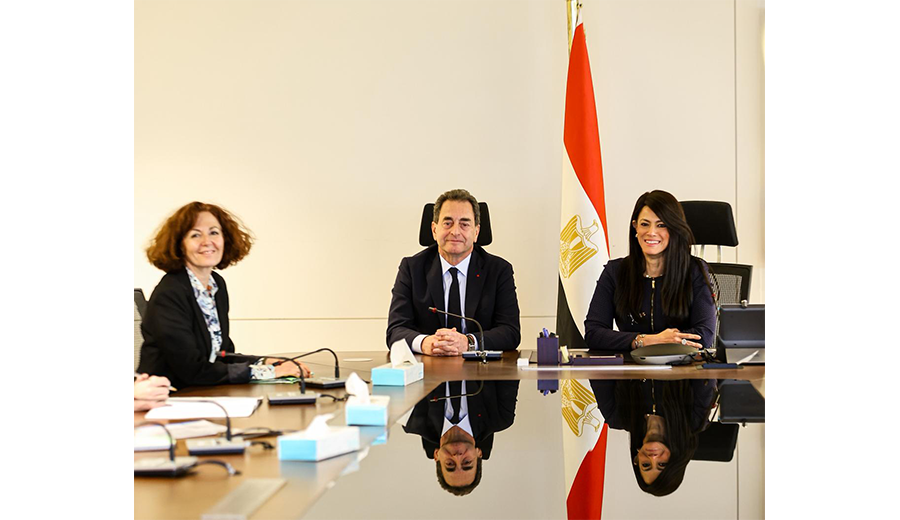Planning Ministry reviews efforts to implement budgets for programs before Egypt's Parliament planning committee

09 June 2021
The Ministry of Planning and Economic Development represented by Dr. Jamil Helmy, Assistant Minister to follow up on the implementation of the goals of the sustainable development plan and head of the Program and Performance Plan Unit, reviewed the ministry’s efforts in implementing programs and performance plans and budgets before the Parliament’s Plan and Budget Committee.
Dr. Jamil Helmy explained during the committee’s meeting that the Sustainable Development Strategy: Egypt’s Vision 2030 emphasized that challenges are facing the preparation of the state’s general budget, especially concerning reliance on traditional systems for preparing the state’s general budget, and the lack of flexibility in transferring between chapters and financial items.
"The current budget preparation system is based on monitoring inputs from financial resources, human energy, and infrastructure, and does not measure the return on investment of those inputs to achieve the state's goals." He said.
Helmy added that to counter this, the strategy included a program aimed at changing the method of preparing the state's general budget from item budget to program and performance budget to link system inputs with its outputs.
In light of this, the government, in partnership with the Parliament's Plan and Budget Committee, has taken many effective steps in this context.
Helmy reviewed the stages of development in this matter, noting that during the fiscal year (17/2018): the first unified model for preparing the program and performance budget was prepared so that the preparation process would be unified, and 6 ministries had applied program and performance budgets (Education, Technical Education, Higher Education, and Research Scientific, housing, utilities, and urban communities, social solidarity, transportation, communications, and information technology).
The fiscal year 18/2019 witnessed the implementation of 10 new ministries balancing programs and performance (planning and economic development, finance, supply, and internal trade, manpower, tourism and antiquities, youth and sports, trade and industry, local development, environment, health, and population), bringing the total number to 16 ministries.
Helmy indicated that several steps have been taken following the programs and performance methodology, including the launch of the national monitoring and evaluation system “Performance”, which includes 3200 indicators to measure the performance of all development programs, including 380 indicators to measure the strategic impact of the programs included in the government’s work program (18/2019 - 21/2022).
Helmy added that the "harvest of the construction phase" report was also issued, which includes detailed data on the projects implemented in all sectors of the state, to activate the subsequent follow-up by ensuring that the projects that ended the service start to enter, and that citizens benefit directly from them, as well as the issuance of the "Citizen Investments Plan” for 27 governorates, intending to activate community participation, settling sustainable development goals, and spreading a culture of programs and performance.
Helmy added that with the aim of institutional reform of the program and performance system, Prime Minister Decision No. 1167 of 2019 was issued regarding the budget of programs and performance, which stipulated the formation of a unit in the Ministry of Planning and Economic Development for a "programs and performance plan."During the fiscal year (19/2020), Helmy explained that the number of ministries that implemented programs and performance amounted to 30 ministries, and the largest training program was held (in cooperation with the distinguished parliament in its previous session) on a "unified form" that includes all data related to the lowest operational program (process).
“As well as all the data related to each main and sub-program for each entity, from which 1,760 employees benefited from the offices of all ministries, affiliated agencies, and service directorates in the governorates, through 200 training hours, and a "Strategic Indicators Document for the Government's Work Program" was issued, to follow up and measure government performance, from During the goals of Egypt's Vision 2030,” he added.
Helmy indicated during the committee’s meeting that the fiscal year (20/2021) witnessed the launch of the “matrix of programs” that includes the executive programs of the ministries and agencies, which are determined through the government’s work program and the establishment decision that defines the competencies and powers of each ministry/agency, and the data of the Central Agency for Mobilization General and related statistics.
Regarding what was achieved during the fiscal year (21/2022), Dr. Jamil Helmy explained that in the framework of activating the implementation of program and performance plans, the "Guide to Environmental Sustainability Standards: The Strategic Framework for Green Recovery" was launched in cooperation with the Ministry of Environment, to integrate the environmental dimension into the sustainable development plan. (21/2022).
A follow-up system for the presidential initiative to improve the quality of life in rural communities, "A Decent Life", was also launched, which is the second generation of electronic follow-up mechanisms based on the program and performance plan methodology, as it includes the full stages of the plan preparation process, follow-up, and evaluation of development impact.
The plan for the year 21/2022 also included 25 new initiatives based on the programs and performance methodology, with EGP 65 billion allocated for their implementation in the same year.









